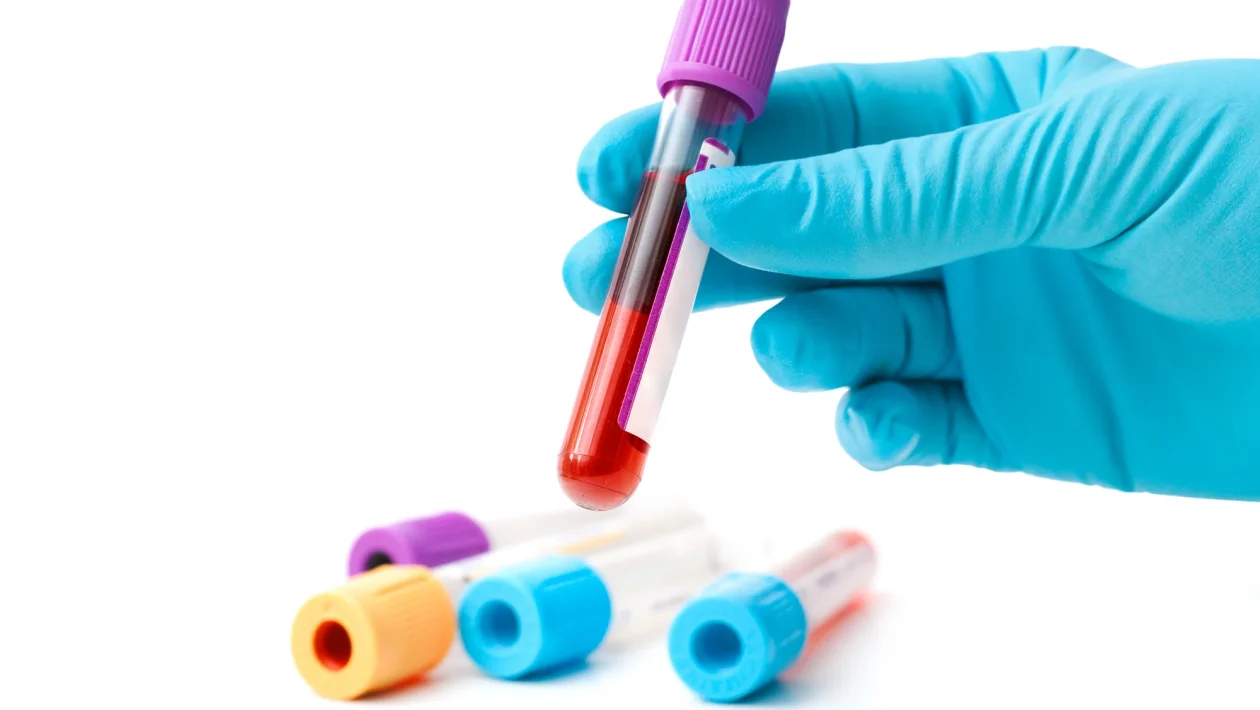You may be wondering why fasting is important if you’ve ever scheduled a blood test and been instructed not to eat before. Is it merely out-of-date advice or is it truly necessary?
In actuality, fasting is crucial to guaranteeing the precision of some blood test findings. Without the transient impacts of your most recent meal, it helps give you a clear, consistent picture of what’s going on in your body.
This article explains the science behind fasting, including which tests call for it, what you can and cannot eat, and how to get ready.
Table of Contents
What Is Fasting for a Blood Test?
Fasting is the practice of consuming only water and no other food or liquids for a predetermined amount of time prior to your blood tests. Eight to twelve hours is the most popular fasting window.
Your body is not breaking down food, sugar, or fats from your previous meal during this period; instead, it is in a stable metabolic state. This facilitates the measurement of your baseline levels of specific markers, such as triglycerides, cholesterol, and blood glucose.
Why Fasting Is Important: The Science Explained
Your blood is impacted by everything you eat, including hormone release and blood sugar and fat levels. Your blood work may show transient changes rather than your normal state if you’ve just eaten right before the test.
Food can get in the way of this:
- After eating, insulin and glucose levels increase, which may conceal early indicators of diabetes or insulin resistance.
- Your blood’s triglycerides, a form of fat, rise after meals, particularly if the meal was heavy in fat or carbs.
- Recent meals, alcohol consumption, and supplement use can all affect liver enzymes and cholesterol levels.
By ensuring that your results are standardised, fasting makes it possible to accurately interpret and compare them over time or between people.
Which Blood Tests Require Fasting?
You don’t have to fast for every blood test. However, the following frequently do:
- Blood glucose testing during a fast to detect prediabetes or diabetes
- HbA1c – doesn’t require fasting, but often grouped with tests that do
- Lipid panel (cholesterol and triglycerides) – for assessing heart disease risk
- Liver function panel – sometimes affected by recent food or alcohol
- Basic metabolic panel – includes glucose, calcium, and electrolytes
- Iron studies – can be influenced by meals or supplements
- Insulin and fasting insulin levels
When in doubt, it’s best to enquire prior to your appointment with your doctor or test provider.
What Can You Have During a Fast?
Generally speaking, you can do the following during the fasting period prior to your blood test:
You are able to:
- Drink plenty of water; it may actually facilitate your blood draw.
- Prescription drugs, unless your doctor instructs you otherwise
Avoid:
- Food of any kind
- Coffee or tea (even black) – they can affect blood sugar and hydration
- Even sugar-free chewing gum can impact digestion.
- Alcohol and smoking can both affect blood markers.
- Supplements, particularly those containing iron, biotin, or other substances that affect metabolism
Tips for a Smoother Fasting Experience
Most people can safely fast for an exam, but preparation is key. Here are some pointers:
1. Make an early test appointment
Fasting overnight and getting your blood drawn first thing in the morning is the simplest method. In this manner, you will spend the majority of the fast, asleep.
2. Drink plenty of water
Before your test, make sure you drink lots of water because it keeps your veins plump and facilitates a more comfortable and quick blood draw.
3. Steer clear of overdoing it
Avoid strenuous exercise right before the test because it may impact certain results, particularly those related to muscle enzymes and glucose.
4. Keep Medication Consistent
Continue taking your medication as directed unless instructed otherwise; however, if you are uncertain whether to take it, consult your doctor.
What Happens If You Break Your Fast?
If you accidentally eat or drink something other than water, let your clinic or doctor know before the test. Depending on the test type and what you consumed, they may need to reschedule to ensure accurate results.
Never try to “guess” whether what you ate will impact your results — it’s better to be honest and avoid a misleading result.
What About Fasting for Long Periods or People with Health Conditions?
Most adults can safely fast for 8 to 12 hours. But if you:
- Take drugs that affect blood sugar levels or have diabetes
- Are pregnant
- Have a history of hypoglycaemia (low blood sugar)
- Are on a specific meal plan or eating schedule
You should talk to your doctor first. There may be an adjusted protocol to ensure your safety.
Final Thoughts
Fasting prior to a blood tests is a straightforward procedure that helps ensure the accuracy of your results, not just a formality. You’re positioning yourself for the most accurate results by knowing which tests call for fasting, what to avoid, and how to get ready.
Sometimes the fundamentals are still the most important in a world of sophisticated health monitoring and sophisticated diagnostics. And one of those essentials is proper fasting.
References
- Healthline – Fasting Before a Blood Test: What You Need to Know
https://www.healthline.com/health/fasting-before-blood-test - Medical News Today – What to Know About Fasting Before a Blood Test
https://www.medicalnewstoday.com/articles/319080 - Better Health Channel – Blood Tests
https://www.betterhealth.vic.gov.au/health/conditionsandtreatments/blood-tests

